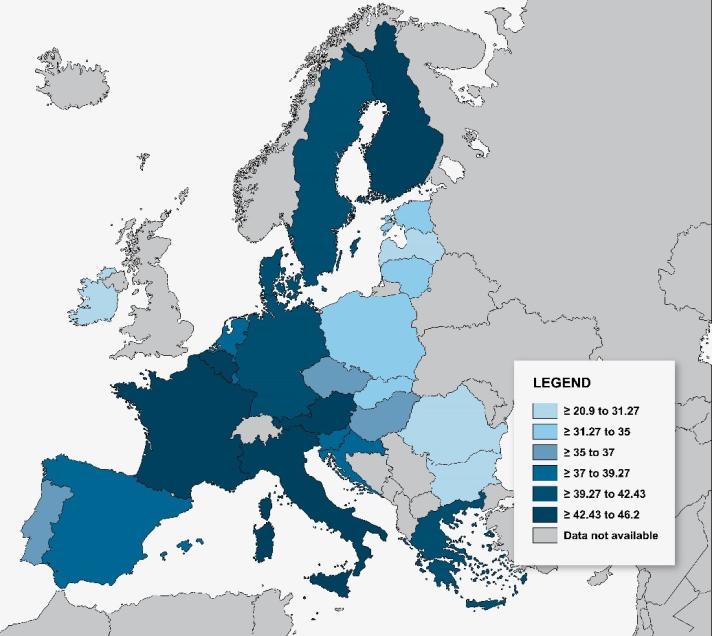The way we collect taxes shapes our societies and their ability to deliver prosperity and social cohesion for its citizens. Today’s launch of the 2024 edition of the Annual Report on Taxation provides an update on the state of play of tax systems in the Member States of the European Union. It aims to inform the debate about:
- the developments and challenges faced by EU tax systems by type of tax and by tax base; and
- how the design of our tax systems can impact our economies and how structural changes can impact our tax systems’ ability to collect revenues to fund public expenditure.
The report discusses both recent reforms in EU tax systems and developments in the main indicators used by the Commission to assess tax policies in EU Member States and at EU level. The report aims to inform stakeholders of recent developments and provide policymakers with insights that can help them improve the functioning of tax systems in the EU.
The report scrutinises the structure of tax revenues across the EU, according to their economic function and the type of tax, with a focus on the differences across countries and over time. In addition, this year the report focuses on the contribution of tax systems to a competitive and prosperous EU economy.
After five quarters of stagnation, the EU economy accelerated in the first quarter of 2024 accompanied by a continued deceleration of inflation and strong labour markets. However, ongoing wars in the EU neighbourhood and increasing geopolitical tensions generate uncertainty. In the short-term, budgets remain burdened by the legacy of the COVID-19 pandemic and the energy crisis. In the long-term, population ageing and digitalisation, as well as the need to address climate change and reduce inequalities, will have an impact. This in turn may challenge the ability of tax systems to obtain the revenues needed to support public spending and deliver social policies.
The report shows that in 2022 the tax burden in the EU amounted to 40.2% of GDP (including social contributions), slightly above pre-pandemic levels. However, it varied significantly across Member States.
Looking ahead, current and long-term challenges call for a more balanced and future-proof tax mix, with effective tools to fight aggressive tax planning strategies and ensure tax compliance, including by tapping into the benefits of digitalisation. Keeping the EU competitive edge is at the heart of Europe's economic agenda. Taxation can play a role, as the report shows. For example, tax systems can shape labour market outcomes and influence research and innovation, both of which can contribute to growth. Simpler, more transparent, efficient and effective tax systems that deliver stable tax revenues in a fair manner will be an essential part of making the EU more competitive. Strengthening administrative cooperation, exchange of information, the adoption and implementation of the two-pillar solution are also crucial to deliver stronger tax systems.
To find out more about recent trends in taxation, the yearly ART event will take place on 4 July from 14:00-17:00. It will discuss how our tax systems can shape jobs, the impacts of tax compliance costs and what we can learn from simplification.
Details
- Publication date
- 3 July 2024
- Author
- Directorate-General for Taxation and Customs Union

